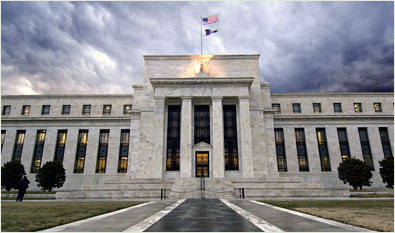
Money Matters Update October 15, 2015 Please Read
Money Matters airs today, Thursday. October 15th at noon, PST on KVMR FM. Tune in!

Can you help me feed the poor this Thanksgiving?
My “match your funds’ Turkey Matters program is officially underway. Mail in your check to any food bank you choose. I will drop a digit and match your funds (up to $5,000) and mail my check to that food bank. Make your donation go farther!
Let’s buy Turkeys for the poor! Your Thanksgiving will never be better knowing you helped me feed thousands of hungry people! Just mail me a receipt of your donation to the below address. (New regulations on me require you make the donation yourself- do NOT mail the check to me)
Mail me the receipt then I will mail a check to that particular food bank.
Mail your receipt to address exactly as listed below:
Money Matters/Turkey Matters
PMB 101
578 Sutton Way
Grass Valley, Ca 95945

What stock sectors react to what macroeconomic events?
Although common sense might lead one to think one way or another, the truth lies between both common sense and market sense, in other words how markets react with each other and the world around them.
When interest rates rise, you might think financials perform worse, common sense pointing you to the increasing cost of their money they have to lend out.
But banks can charge more interest on the back side, and since they make a percentage on the amount they loan, higher interest rates can increase the total amount they lend out, so their percentage goes up, making them more profits, or so the story goes.
Higher interest rates can put pressure on highly leverage companies, those that borrowed a lot to finance their activities, but it might take out some of their competitors as well, increasing market dominance for the surviving companies.
A stronger US dollar can make US exports more expensive but companies that sell mostly to US consumers might sell even more, making their financials even better.
Higher rates could hurt companies selling or mining gold as gold pays no interest and if rates rise the cost of holding gold becomes more expensive to investors, but higher rates could signal inflation is materializing and many investors buy gold to guard against inflation.
No matter what an investor’s belief on what does what to company sales, many underlying currents and cross currents of what happens down the line could have an opposite effect of what common sense might tell you might happen.
Although no one can say for sure what exactly will happen to prices of company stocks when certain things happen, we can never say never and also never say for certain what will happen because something else does. There is always two side of a story and in the world of investing, for every investor betting a cause will cause an effect, there is always another investor willing to take the other side of that bet at the right price, simply because he believes in something else.
-------------------------------------------

Dear fans,
For years people have listened to my show and read my columns. Because many thought I made sense and agreed with my economic views, they requested I manage their funds and for years I have refused. I simply had too much work in the radio/ media business. But after so many requests and having given it serious consideration, I have joined a very dear friend at his firm MKB Financial Services in Auburn. Matt Baltz and I think alike. We are like family. We strive to provide the best service, with integrity, straight forward analysis with detailed and concise communication. We offer a full range of money management, retirement planning, income planning, family planning, investment recommendations and more. We have developed 3 portfolios to help meet the needs of our clients. The cost will be a simple fee commensurate with the industry on the amount invested.
I will talk with you quarterly to review your investments and more often if you require it.
Annually we meet and you and I will update your financial information to keep us on track and make sure you and I are up to date on your situation and your expectations.
We will handle the transfer paperwork for you. I will sit down with you and gather your individual situation and your needs, basically getting to know your financial picture so together we can decide what is best for you and your family.
I am excited to be able to offer you this opportunity to go “Money Matters”!
Call me today at my personal number (530) 559-1214 (private cell- do not give out ) to talk with me about meeting with you or just to get more information. I expect to be busy with this announcement so give me a call to beat the expected rush! Or send me an email at mcuniberti@cambridgesecure.com
Thank you again and I look forward to meeting of all of you!
Website news:
The website moneymanagementradio.com is being overhauled to reflect this new opportunity.
You will start receiving newsletters again shortly! Thanks again for your patience and I look forward to speaking with you on and off air!
All the best and I am so excited to hear from all of you on my new role in managing your finances if you would like me to fill that role!
Marc
Who we are:
Marc is an Investment Advisor Representative. Financial services, retirement planning, portfolio management and more are now available with portfolio management overseen by Marc himself.
Moneymanagementradio.com offers contact information to speak with Marc and learn about what we offer so keep reading!
Marc Cuniberti, award winning host of Money Matters and Money Management Radio, welcomes you to his updated website. Money Matters articles grace the pages of many newspapers and financial media. On this website, you can download any of his radio shows by subscribing on any website page. Sign up for his newsletter or learn about his opinions about the economic world around you by clicking around the site. Of course, the radio shows are the main reason the site is here, so look through the SHOW TITLES page to hear a variety of topics,one or more are certain to peek your interest and perhaps find a show(s) that apply to your particular interest or question.
Download programs and listen at your convenience to his uncanny ability to forecast what's happening in the world and their economies.
Just listen to the shows!
Marc has a unique ability to explain in the simplest of terms what's really going on in our markets and what everything means in language even the novice can understand. Don't be in dark any longer about investing, those stock market terms, or what it all means. Learn about money and you will be well on your way to improving your education about the world of money around you.
His shows are said to be addictive and once you hear one, you won't be able to stop listening. Although incredibly entertaining, riveting and even humorous, the real advantage to his analysis and commentary is that it MAKES SENSE!
Listen to a show and see what we mean. Economics and your money finally have a friend that can help you understand what's really going on around us.
Shows will be available soon!
This new site will now be at no cost so all shows we post you can download at no charge. The newsletters as usual is also no cost. This website will be geared more towards clients and their portfolios that we manage so keep reading below to take advantage of this new opportunity for me to manage your portfolio! We will be posting shows soon. You will also notice a few less items on our menu but have no fear, we will be adding new pages as we go along. It has been a long road to get this up again so thank you for your patience. I think you will find this streamlined site and no cost option as exciting to explore, read and listen as I find it to produce.
No matter what show you pick, you will hear why “Money Matters” by Marc Cuniberti is the fastest growing economic show on the radio today.
-------------------------------------

Since the Federal Reserve held fast on rates and decided again not to increase their base rate, the markets have reacted violently, up one day and down the next.
The moves have been pronounced and investors looking for some calm after the Fed meeting and the fact they did not raise rates were sorely disappointed.
Off the lows of about 15,300 on the Dow a few weeks back, it has gained about a 1000 points or so only to oscillate back and forth, giving investors hope one day then trashing them again as gains evaporate the next.
One would think the lack of movement on interest rates by the Fed would have led to a prolonged rally and although we did get a rally, it was indeed short lived and quite bi-polar.
Now investors are left wondering what is next, both in the markets and with the Federal Reserve.
The Feds next interest rate meeting is in October, about a month away, and with the same uncertainty we had prior to the last meeting, one could argue little has changed.
Wanting to provide market stability and avoid a possible sell off by keeping interest rates where they were, the Feds have apparently just prolonged the uncertainty.
Round and round we go with the Feds and we are again left wondering if they will raise rates next month, a familiar theme it seems.
With the budget limit once again in the news and China still struggling, uncertainty is about the only thing that IS certain and these radical market movements are reflecting that uncertainty.
Technical analysts point to the historical precedent that hints the Dow may have to test its recent low again and dip down into the mid 15,000’s again, and only then will it be cleared for lift off. This is only one view of course, while others believe a sustained upward movement is fast approaching.
As usual, market prognosticators never agree, much like our politicians with each having a distinct opinion of what should and will happen.
To be sure, with the Chinese economy convulsing and the US debt limit up for grabs, add in the recent implosion of the Brazilian currency and some large Brazilian corporations (www.zerohedge.com) and one could argue economic conditions are far from ideal for the markets to run upwards and instead possibly search for new lows or at least revisit the recent low during last month’s trouncing.
Some analysts are going so far as to hint that more QE might be in the cards for the US but with threats of increasing interest rates on the front burner, it would be a far stretch of the imagination to believe the US Fed Reserve will do an abrupt about face, and not only hold rates where they are but double barrel the problem with another round of QE.
More QE is ongoing in Europe and in Japan as we speak, and China also has a seat at the QE table initiating its own version of save the markets bacon with the printing presses.
With so many cross currents, it’s no wonder investors don’t know which way to turn.
Until some of these questions get answered and some issues resolved, a sustained movement in any direction is probably not in the cards but then again, I, like the rest of the world, cannot call market movements for certain one way or another.
Much like a stopped clock being twice a day, I CAN say the markets will go up, down or sideways in the days and weeks to come and it’s truly anyone’s guess in this most difficult market environment.
If you’re wondering just what to do with your investing portfolio, in times of uncertainty, a well-diversified portfolio with some cash reserves can at least reduce some risk. After all, the cash portion won’t go up in an up market but it won’t go down in a down one either.
When in doubt, cash is often thought to be the safest place to be.
----------------------------------

In this happy, feel good world where everybody gets a trophy, we find out some people don’t believe in such things.
The proverbial participation trophy is given to kids and adults alike for taking part in sports programs, school projects and other worthwhile endeavors. It is recently a fairly new concept in the world of such things, with the concept becoming more prevalent in just the last few decades or so, a byproduct of the world of political correctness.
You know the drill, your child joins a little league team or participates in a school competition, or maybe you enter some contest of skill or knowledge and at the conclusion of such an event, everybody that entered gets some sort of award.
These awards go by fancy names but most know them as participation awards. Indeed my own kids have shelves of glistening trophies which to the naked eye attest to excellence by my children in the things they have participated in. A quick glance at the trophy cases in my house would lead one to believe my kids are the best at everything they try, but in reality, few trophies we have point to an exceptional performance over their peers.
Don’t get me wrong, I love my kids dearly and in my mind they are all champions but the best baseball players? The best academics? The best in the spelling bees?
Hardly.
Our trophy case is full of participation awards, of which all the other kids that participated have the same trophies on their shelves at their house.
Is the practice of handing out trophies carte blanche teaching our kids the valuable lessons that the trophies of old used to signify?
One prominent NFL player for the Pittsburg Steelers doesn’t seem to think so.
The super aggressive and one of the NFL’s best linebackers, and 2008’s defensive player of the year, James Harrison, believes participation trophies do more harm than good.
Each of his two sons received a “Best of the Batch” student activities trophy and upon returning home and seeing them, he promptly returned both trophies. Taking it a step farther, Harrison explained in detail just why he did it saying:
I came home to find out that my boys received two trophies for nothing. Participation trophies. While I am very proud of my boys for everything they do and will encourage them until the day I die, these trophies will be given back until they EARN a real trophy.
Harrison then went on explaining:
“I am sorry I am not sorry for believing everything in life should be earned, and I am not about to raise two boys to men by making them believe they are entitled to something just because they did their best, because sometimes your best is not enough, and that should drive you to want to do better, not cry and whine until somebody gives you something to shut you up and make you happy”
Harrison seems to be ranting against the culture of entitlement, where everyone is entitled to whatever it is they think their entitled to.
Taking it a step farther, I hasten back to JF Kennedys famous quote:
“My fellow Americans, ask not what your country can do for you, ask what you can do for your country”
And as Brad Hoppman of Uncommon Wisdom Daily puts it:
“Yet too often these days, there is a culture of entitlement that effectively praises someone for who they are and not for what they achieved. This is a problem in society that starts with things like participation trophies that morph into things like not keeping score at baseball games so as to not offend the losing team, or abolishing grades so as not to offend kids who weren’t able to get A’s.
The biggest problem here is that this kind of collectivist-style child rearing where everyone is a winner, and there are no real losers and no one child’s accomplishments are better than another’s, is not commensurate with how the real world works”
As for my family, my kids bust their butts as I do to encourage them, to get only straight A’s in school, and b’s and c’s are not good enough. As a result my kids have attended 24 collective years of school and received only one B between the three of them.
They have put in the work, sacrificed much while their other friends are out playing, and I will be darned if I think my kids should get the same trophy as all the other kids who perhaps are not studying as hard or working so diligently and then fail to get such exemplary grades as my kids have.
No dear reader, on this one I side with Linebacker James Harrison and the thousands of others who supported his media blast on his son’s participation trophies, whom, as a result of Mr. Harrisons actions, no longer have them.
In my world, and apparently also in Mr. Harrisons, achievement deserves reward, excellence deserves recognition, and only a few will ever attain such stature or deserve it.
In my world, and apparently also in Mr. Harrisons, you don’t get an award simply for showing up.
--------------------------------------------
Low interest rates: it seems they have been near zero for half a decade or more.
They have been ultra-low and at self-professed emergency levels set there by the governmental body called The US Federal Reserve Bank.
They believe ultra-low interest rates encourage people to borrow more and therefore they will have more money to spend. I suppose this is true but is this any way to run an economy or foster a recovery?
When people borrow money to spend, is this a good thing?
Does it make for a good financial plan in your house?
Probably not, but the Feds seem to think what won’t work in a household budget will work on an economy many billions time bigger.
Not only do low rates encourage people to take on more debt, (if that wasn’t bad enough) low rates do other damages as well.
Low rates cause inflation. Just look at the housing market of the mid 2000s’. The ridiculously low mortgage rates enabled fierce competition between buyers. Because of all the money flowing into the housing sector as the banks went hog wild cramming ultra-low interest loans to every buyer that walked in the door,
housing prices skyrocketed. That fueled a speculative bubble where higher prices begat higher prices until the whole thing imploded.
Low rates also flood the markets with money as investors use low rates to borrow more than they would had rates been higher. The lower the rate, the more borrowing there is. With so much money available, those wishing to borrow money such as companies or individuals have many sources to go to, which means they can shop around for the lender giving the lowest rate. This ongoing competitive market place where dollars are everywhere drives borrowing rates further and further down. Some of this money finds its way into the stock and bond markets where investors seek better returns than the anemic low interest rate environment.
This drives the prices on bonds and stocks higher, which by definition inflates dangerous asset bubbles (like the real estate bubble described above) which can pop later on causing financial havoc. One only has to look back at the dot.com and real estate bubble to see the damage bubble implosions can cause when things go in reverse as they always do where bubbles are involved.
Another hazard of low rates is marginal companies near the brink can borrow money to stay alive where otherwise they would have folded up tent by way of a bankruptcy filing. Startup companies with poor business plans can also arise because of the low cost of borrowing. Low interest rates foster “zombie” parasitic businesses which should be out of business but are kept alive by ultra-low rates. This perpetuates bad management, bad decisions and bad business models.
High rates on the other hand insure only the best businesses survive, which bring the most value to consumers and also use less of our natural resources. Efficient businesses use less resources. Inefficient ones burn up our resources due to their inefficiencies.
For a real world example take companies such as those that explore for, drill, or refine oil. Many should be dead and buried but are kept alive through low-cost borrowing.
These companies then add to the supply and can cause gluts which lead to plummeting prices. Although good for the consumer, gone too far, low oil prices can stop these marginal producers from making a profit. In order to stay alive, they pump even more oil which floods the markets even more, causing more price reductions.
Such is the situation we find ourselves in today where many companies have borrowed so much cheap money, their combined production is driving oil prices to decade lows. This oversupply is caused by the low borrowing rates these companies can obtain money at in today’s debt markets.
In plain English, make money too cheap to borrow and you get more and more marginal companies which then add to an already abundant supply.
This is called “mal-investment” in economic terms and throughout history low rates (which is also called easy money) foster mal-investment. In simple terms, too many companies are living on cheaply borrowed funds which are made possible by low rates. As a result they are producing just too much stuff.
Both bubble economies and mal-investment type economies have many things in common. They eventually implode causing massive economic damage and are both brought about by ultra-low interest rates. They cause massive inflation in certain assets and give false signals about demand and supply to businesses which causes them to make wrong investment decisions which ultimately waste funds and resources.
With the dot.com blow up and housing bust in our recent memory, both brought about by ultra-low interest rates, the Feds are doing it again by keeping rates low yet again. As a result (and to no surprise to this analyst) we are seeing dangerous bubbles inflating in many asset classes.
The Feds keep trying to halt the implosions caused by low interest rates with low rates. They fail to see the correlation between the implosions and their causes. They still believe low rates is the cure, not the cause.
Until they wise up and see how things in the economy really work, we are likely in for more economic implosions, with each one subsequently being worse than the last.
Things that make you go hummmm.
The Federal Reserve has kept ultra-low interest rates deemed “emergency rates” for half a decade and counting. They keep promising to raise rates but when the time comes, back pedal saying they need more evidence the economy is on strong footing, all the while assuring us the economy is fine and America is stronger than ever. Obama seems to agree stating at an August 2014 Brady Press Room briefing: “"we have a record stock market," "record corporate profits," 52 straight months of consecutive job growth" and "an energy sector that's booming." So why the emergency ultra-low rates Janet Yellen?
Perhaps Obama isn’t conversing with the Federal Reserve?
Hillary Clinton latest musing on Bloomberg, August 8th is entitled: “My plan to prevent the next crash”.
Let’s see now, centuries of markets participants, analysts, every President and ruler of every country and central bank, every scholar and student of markets and economics and millions of Wall Street quants and gamblers haven’t been able to prevent market crashes and we are now to believe she can?
Volkswagen, a once reputable car company, purposely designed some on board smog systems to trick smog tests, risking it most valuable asset, its reputation and the trust of its customers. Now it will pay literally billions to fix the problem, probably billions in fines not to mention lost sales as customer buy cars from companies they can trust.
All this to beat a smog test? Was it worth it Volkswagen?
But wait, the US head honcho of VW apologized this week to Congress. Ah, its all good now.
From the Baltimore Sun, Obama’s job Czar General Electrics CEO Jeff Immelt at the Economic Club of Washington said:
The company would move manufacturing jobs to Canada and Europe if the Export-Import Bank closes and that U.S. economic influence will wane if Congress blocks a major Pacific-rim trade pact.
Not that is anything new for Immelt. He shuttered the last GE light bulb plant in the fall of 2010, moving plant and jobs overseas.
Isn’t a job czar supposed to spearhead keeping jobs here in the US?
In September of last year The House of Representatives approved President Barack Obama's plan to train and arm Syrian rebels that the U.S. classify as moderate. An escalation of arms to the area is now ongoing in light of the recent airstrikes as Yahoo news reports fighters from Suqur al-Jabal (Falcons of the Mountain) have received training and equipment as part of a $500-million US program to build up a force to combat ISIS in Syria.
Do those arms ever come back to kill US Troops, nah, never happens. And what the hell does moderate mean. The rebels are kinda on our side and kinda not?
Ruport Murdoch meanwhile may be color blind, at least in some reality, but tweeting in reference to Presidential Candidate Ben Carson, the owner of a big chunk of America’s media companies, tweeted last week:
"Ben and Candy Carson terrific, what about a real black President who can properly address the racial divide? And much else."
Now that’s a real thing that makes you go humm.
Ben Carson, speaking with Wolf Blitzer about the tweet, seemed to take all things in stride, saying in essence, no big deal.
Money Matters airs Thursday October 15, 2015 at NOON pst on KVMR FM and on www.kvmr.org.







